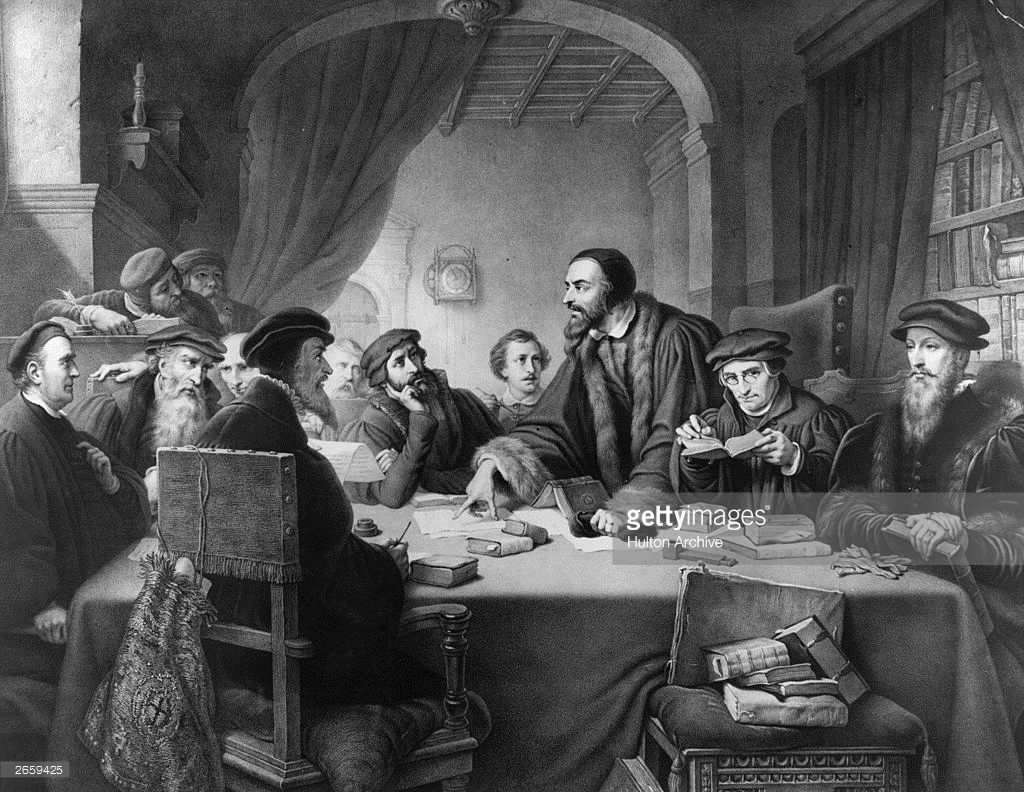 |
 John Calvin Speaking at the Council of Geneva 1549 John Calvin Speaking at the Council of Geneva 1549 |
A Maligned Social Reformer
John Calvin’s theology was forged in the cauldron of social conflict. Although Calvin as an exile in Geneva would have cherished his new found freedom from the tyranny of the king of France and from deadly attacks launched by militant Catholics, no one can downplay the trauma of his social dislocation after fleeing from France. For Calvin, theological reflection in exile became a desperate intellectual mechanism to secure a sense of harmony and well-being for one who was now a stranger in a strange land. Calvin’s plight was exacerbated by the fact that Geneva, his new ‘home,’ was a city of contentious factions competing for power as the city groped for ways to maintain order and security after breaking away from the Duke of Savoy in 1535. One may say that for both Calvin as an alienated exile and for the Genevans, finding the right balance between their precious freedom and preserving their precarious social order assumed an existential intensity.
Calvin had to contend with Genevan citizens who jealously guarded their newfound freedom (the Libertines) and resolutely rejected any semblance of social regulation which they regarded as a regress to the old oppressive order. He forcefully opposed the Anabaptists to prevent irresponsible libertarianism which would result in lawlessness and endless disputes. Finally, Calvin had running battles with the civil authorities of Geneva – the elected Council and its liaison committee working with the pastors (the Consistory) – to limit the jurisdiction of civil authorities in the ordering of church life. Continue reading “John Calvin’s Reformation in Context – Calvin’s Social Theology. Part 1/4”